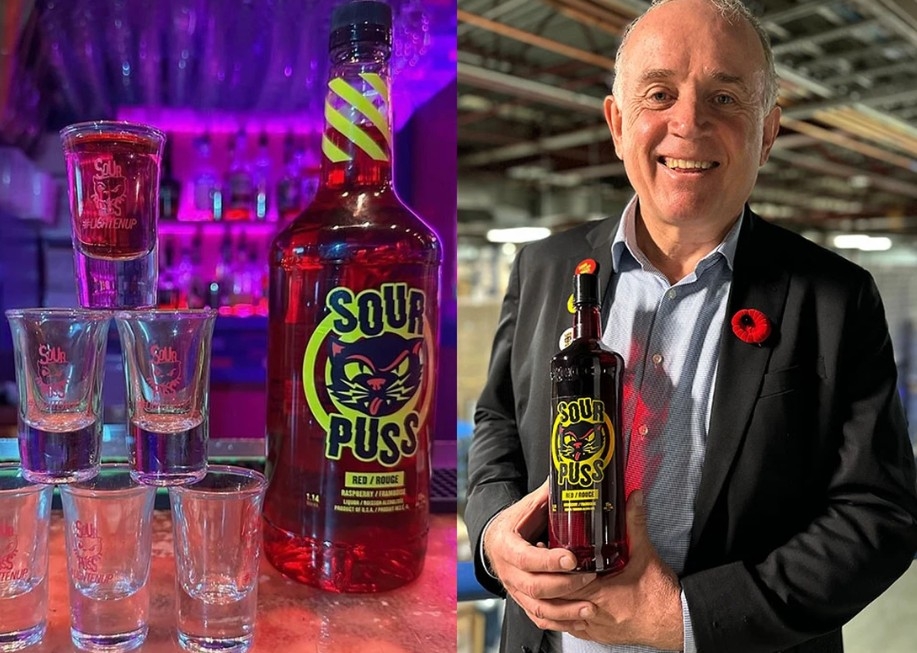A distinctly sour turn of events is brewing in the world of spirits. Sour Puss, the vibrant liqueur known for its playful branding, is shifting production north of the border – to Canada – a direct consequence of escalating trade tensions.
The decision, announced recently, stems from a dramatic collapse in Canadian sales following threats of tariffs imposed by the United States. Andy England, CEO of Phillips Distilling Co., recounts a swift and devastating loss of market access when provincial liquor boards began removing American-made products from their shelves.
The impact was staggering. Nearly all – 98% – of Sour Puss’s one million bottles sold last year were destined for Canadian consumers, representing a $23 million market. Suddenly, that revenue stream vanished, forcing a critical reassessment of production strategy.

Production will now be centralized in Montreal, utilizing the facilities of Station 22 distillery under a long-term agreement. Bottles crafted in Canada are expected to reappear on store shelves within weeks, with initial orders already secured from two provinces.
This move is being hailed as a rare victory for Canadian manufacturing amidst a broader landscape of businesses relocating production to the U.S. in response to the trade dispute. It represents a tangible benefit in a situation often characterized by economic uncertainty.
For England, the priority is simple: stability. He acknowledges the unpredictable nature of trade negotiations and the potential for fluctuating tariffs, emphasizing the need for a reliable production base to serve the Canadian market.
Prior to the trade conflict, approximately 13% of Phillips Distilling’s total output from its Minnesota plant was shipped to Canada. The shift to Montreal not only secures access to that market but also offers logistical advantages, reducing transportation costs and streamlining operations.
Beyond simply restoring lost sales, the move unlocks new opportunities. The partnership with Station 22 will enable Sour Puss to launch a line of ready-to-drink beverages early next year – a product category the company couldn’t readily pursue with its existing Minnesota facilities.
The lack of a canning line at the St. Paul plant previously presented a significant hurdle. Station 22 provides the necessary infrastructure, paving the way for innovation and expansion within the Canadian market.
This isn’t just a story about a liqueur brand; it’s a microcosm of the broader economic fallout from trade disputes, illustrating how businesses are forced to adapt and navigate a complex and volatile global landscape.




